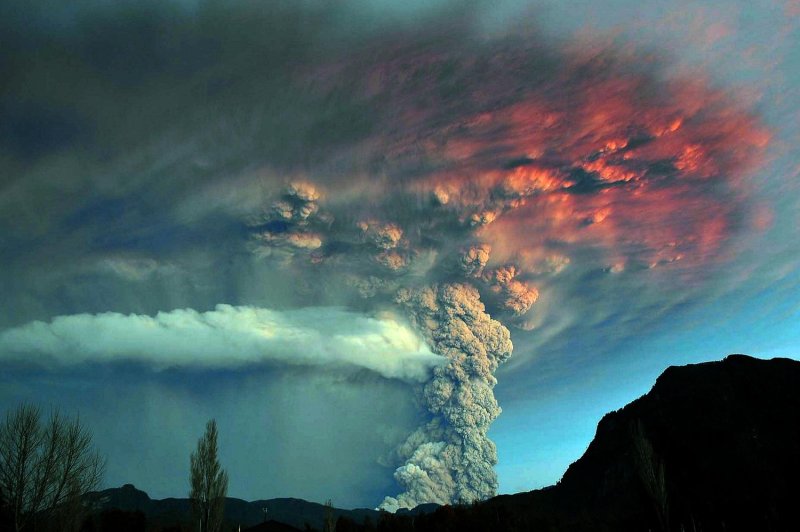1 of 6 | A volcano in southern Chile, some 600 miles south of Santiago, erupts for a second day on June 5, 2011, shooting out a cloud of ash six miles high. Residents evacuated from the Puyehue-Cordón Caulle volcano complex area, and there have been no injuries. UPI/Miguel Angel Bustos
|
License Photo
CORVALLIS, Ore., Oct. 12 (UPI) -- A catastrophic so-called super-eruption of a major volcanic system happens about every 100,000 years, and U.S. researchers say they've found a possible trigger.
Scientists have long considered what could set off such massively destructive events, and researchers from Oregon State University say they think it's a combination of temperature influence and the geometrical configuration of the magma chamber deep beneath the volcano system.
The creation of a malleable ring of rock around the magma chamber allows the pressure to build over tens of thousands of years, creating extensive uplifting in the roof above the magma chamber until geologic faults above the chamber cause it to collapse and trigger a massive eruption.
"You can compare it to cracks forming on the top of baking bread as it expands," OSU researcher Patricia Gregg said in a university release Wednesday. "As the magma chamber pressurizes at depth, cracks form at the surface to accommodate the doming and expansion. Eventually, the cracks grow in size and propagate downward toward the magma chamber.
"In the case of very large volcanoes, when the cracks penetrate deep enough, they can rupture the magma chamber wall and trigger roof collapse and eruption," she said.
The eruption of super-volcanoes can trigger planetary climate change by inducing Ice Ages and other impacts.
"Short of a meteor impact, these super-eruptions are the worst environmental hazards our planet can face," Gregg said. "Huge amounts of material are expelled, devastating the environment and creating a gas cloud that covers the globe for years."















